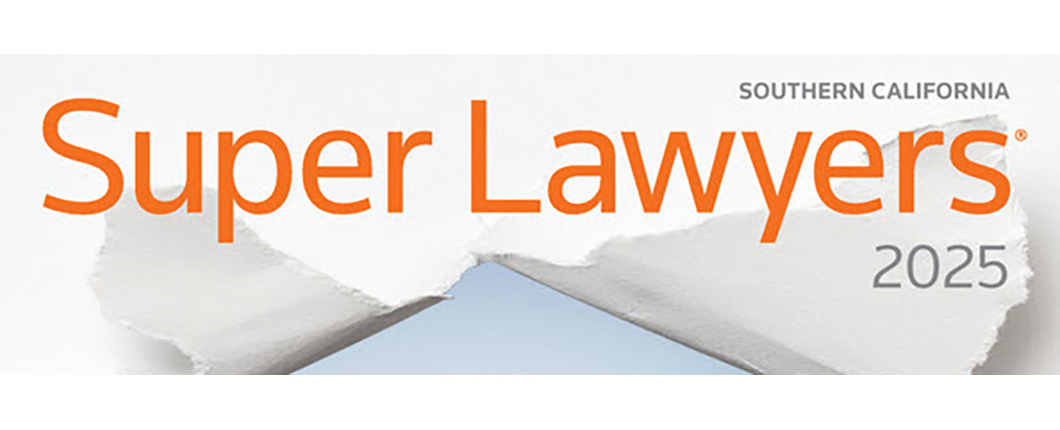
Corporate Transparency Act Overview
On January 1, 2021, the Anti-Money Laundering Act was passed by Congress for the purpose of preventing the illegal use of shell companies to launder funds. Now, three years later, the US government is requiring a new report be submitted from businesses to help prevent and combat money laundering and other illicit activities.
Effective January 1, 2024, the Corporate Transparency Act (CTA), which is part of the Anti-Money Laundering Act, requires reporting companies to file with the Financial Crimes Enforcement Network (FinCEN) of the US Department of the Treasury. The report will provide personal information about the owners of qualifying business entities to law enforcement and national security agencies.
“For too long, it has been far too easy for criminals, Russian oligarchs, and other bad actors to fund their illicit activity by hiding and moving money through anonymous shell companies and other corporate structures right here in the United States. This final rule is a significant step forward in our efforts to support national security, intelligence, and law enforcement agencies in their work to curb illicit activities. The final rule will also play an important role in protecting American taxpayers and businesses who play by the rules but are repeatedly hurt by criminals that use companies for illegal reasons.” – Acting FinCEN Director Himamauli Das
FinCEN issued final regulations for the CTA’s reporting requirements. The CTA requires “all reporting companies”, whether foreign or domestic entities who do business in the United States, to file a Beneficial Ownership Information (BOI) report with FinCEN regarding the following about the entity:
- Beneficial Owners
- Company Applicants
These are sweeping requirements that will significantly impact business entities as well as the law and accounting industries. It is estimated that the CTA will affect over 32 million entities.
Read on to learn more about the following key terms and reporting requirements of the CTA:
- Reporting Company – Which entities fall under the definition of a “reporting company” that must report to FinCEN? Or does the entity fall under one of the exceptions to the reporting requirement?
- Beneficial Owners and Company Applicants – Who are the beneficial owners and company applicants whose information must be reported to FinCEN?
- Reporting Deadlines – When are the BOI Reports due to FinCEN?
To Whom Does the Corporate Transparency Act Apply to?
Defining a Reporting Company
Only “reporting companies” are subject to the CTA’s reporting requirements. A reporting company includes most entities formed in or registered to do business in the United States with a Secretary of State or similar authority and is not an excluded entity under the CTA’s enumerated exemptions (as described below). Entities that are covered by one of these exemptions are not required to file a BOI Report. Companies will want to carefully read the criteria surrounding what constitutes a reporting company directly from FinCEN’s published guidance. The following are exempt from the definition of a “reporting company”:
- Securities reporting issuer
- Government authority
- Bank
- Credit union
- Depository institution holding company
- Money services business
- Broker or dealer in securities
- Securities exchange or clearing agency
- Other Exchange Act registered entity
- Investment company or investment adviser
- Venture capital fund adviser
- Insurance company
- State-licensed insurance producer
- Commodity Exchange Act registered entity
- Accounting firm
- Public utility
- Financial market utility
- Pooled investment vehicle
- Tax-exempt entity
- Entity assisting a tax-exempt entity
- Large operating company
- Subsidiary of certain exempt entities
- Inactive entity
Defining a Beneficial Owner
The Corporate Transparency Act’s focus on beneficial owners is not based on the record of ownership, which can be held in the name of another person or entity, but instead it is defined as any individual who:
- Owns 25% or more of the equity interests in a reporting company, or
- Exercises “substantial control” over a reporting company.
The 25% Ownership Test
Ownership of 25% or more of a reporting company may be held by a beneficial owner directly or indirectly, by any means (whether through contract or otherwise). Accordingly, to determine the individual beneficial owners of a reporting company, one may need to look through intermediary entities to assess the ownership interest by each individual. Additionally, the interest owned by the individual in the company must be assessed to determine if it rises to the level of an equity holding in the company. Examples of such interests include: equity, stock, or voting rights; capital or profit interest; convertible instruments; options; and contract rights establishing ownership in the company.
The Substantial Control Test
Senior executive officers, such as the company’s president, chief financial officer, chief operating officer, and the company’s general counsel, who hold important decision-making powers over the company’s business, finance, and structure will be deemed as beneficial owners who hold substantial control over the company. Individuals who hold authority to appoint or remove certain officers or a majority of directors also would be deemed as beneficial owners who have substantial control over the company. Substantial control by the individual may be held directly over the company or indirectly through one or more intermediary entities that hold substantial control over the reporting company.
The following individuals are excluded from the definition of a beneficial owner under the CTA:
- Minor children (however, the parent or guardian of a minor child who passes the 25% ownership test must report)
- Intermediaries, custodians, agents who are acting on behalf of the beneficial owner
- Non-senior level employees
- Creditors of the reporting company
- Individuals whose only interest is a future right or inheritance (i.e., contingent beneficiaries)
Defining Company Applicants
The “company applicant” to be reported under the CTA is the individual who directly files the reporting company’s formation documents, or if there is more than one individual, the individual primarily responsible for directing or controlling the filing. This may include the reporting company’s attorney or accountant.
For domestic entities, a company applicant would be an individual who files a document to form the entity, or an individual primarily responsible for directing or controlling the filing.
For foreign entities, a company applicant would be an individual who directly files registration documents for the foreign entity to do business in the United States, or an individual primarily responsible for directing or controlling the filing.
Note, however, that reporting companies created prior to January 1, 2024, do not need to include information on company applicants.
How the Corporate Transparency Act Applies to Trusts
Generally, trusts themselves are not reporting companies, but if a trust holds an interest in a reporting company that rises to the level of a beneficial owner under the 25% Ownership Test and/or the Substantial Control Test, then the information about the trustee and the trust’s beneficiaries may need to be provided in a BOI Report to FinCEN.
FinCEN’s final regulations provide that the following individuals may be deemed as beneficial owners of a reporting company, subject to the 25% Ownership Test and/or Substantial Control Test under the CTA rules:
- A trustee who has the authority to manage and dispose of trust assets
- A trust beneficiary who is the sole permissible recipient of trust income and/or principal or who has the right to withdraw all, or substantially all, of the trust’s income and/or principal
- A grantor or settlor of the trust who has the power to revoke the trust or withdraw the trust’s assets
- The individual named in the trust agreement who holds the power to remove and appoint the trustee
When Do Entities Need to File Their CTA Report?
For reporting companies formed prior to January 1, 2024, the reporting company must file the initial BOI Report with FinCEN by January 1, 2025. As a reminder, reporting companies formed prior to January 1, 2024, are not required to identify their company applicants.
For reporting companies formed between January 1, 2024 and December 31, 2024, the reporting company must file the initial BOI Report with FinCEN within 90 days after receiving actual or public notice, whichever is earlier, of the company’s creation or registration.
For reporting companies formed on or after January 1, 2025, the reporting company must file the initial BOI Report within 30 days after receiving actual or public notice, whichever is earlier, of the company’s creation or registration.
After the initial BOI Report is filed, if there are any changes with respect to the information previously reported on the BOI Report, including if there is a change in the basic information, beneficial owners or status as a reporting company reflected in the initial BOI Report, the reporting company is required to file an updated BOI Report within 30 calendar days after the date on which the change occurs, or on the date the reporting company becomes aware of the change or inaccuracy in the previously filed initial BOI Report.
Examples of changes that would require an updated BOI Report include:
- Changes in who is a beneficial owner (e.g. due to transfers of ownership or sales of additional ownership interests)
- A reporting company becoming exempt from the reporting requirements
- Transfers of ownership interests due to an owner’s death
- Transfers of ownership interests when a minor child reaches the age of majority
- Any changes to an identifying document previously submitted (e.g. changes in name, address, or identifying number of the entity)
What information is disclosed in the BOI Report?
For the reporting company, the following information will be disclosed:
- Legal name, trade name, and fictitious business name
- Street address for principal place of business
- Jurisdiction of formation
- Taxpayer Identification Number
- For the reporting company’s beneficial owners and company applicants the following information will be disclosed: Legal name, date of birth, and address
- Identification documentation (passport, driver’s license, etc.), including its identification number and image. For repeat filers, meaning those who have already filed the initial BOI Report and may need to file updated BOI Reports with FinCEN, it may be useful to apply for a FinCEN identifier. Instead of again submitting the personal data provided in the initial BOI Report in an updated BOI Report, the filer can enter their FinCEN identifier in the updated BOI Report, which will automatically associate with the personal data on file provided by the initial BOI Report.
The FinCEN identifier is a unique identifying number that FinCEN issues to:
- Individuals who have provided FinCEN with their beneficial ownership information
- Reporting companies that have filed initial BOI Reports with FinCEN
Please note, an individual or reporting company is not required to obtain a FinCEN identifier. It is merely designed to simplify the process of future BOI reporting with FinCEN.
Who Can Access Beneficial Ownership Information (BOI) Data?
Federal, state, local, and tribal officials, as well as certain foreign officials who submit a request through a U.S. Federal government agency, may obtain BOI data for authorized activities related to national security, intelligence, and law enforcement. Financial institutions will also have access to BOI data in certain circumstances, with the consent of the reporting company. Those who have access to BOI data are listed as follows:
- Federal agencies engaged in national security, intelligence, or law enforcement activity, upon request, for use in furtherance of such activity
- State, local, and tribal law enforcement, with the authorization of a court of competent jurisdiction
- Foreign law enforcement or judicial entities
- Financial institutions, for purposes of complying with FinCEN’s CDD Rule (Customer Due Diligence Requirement under Anti-Money Laundering Act of 2020)
- Federal functional regulators and similar regulatory agencies
- The Department of the Treasury
Penalties for Non-compliance with the Corporate Transparency Act
Willful failure to comply with the CTA’s reporting requirements can lead to civil and criminal penalties, including a maximum civil penalty of $500 for each day the violation continues, or criminal penalties, including imprisonment of up to two years and/or a fine of up to $10,000.
For incorrect or incomplete information, a correction submitted within 90 days of the original BOI Report will prevent enforcement action.
CTA’s new reporting requirements also have raised privacy concerns, which the CTA has addressed through data protection parameters. FinCEN must store BOI data in a secure nonpublic database, using the highest level of security. Penalties are steep for those that violate these protections. Unauthorized disclosure of BOI data could result in a criminal penalty of up to $250,000 or five years imprisonment.
Actions to Take Now
Action must be taken now by reporting companies to keep track of all the entities they own and control. Each entity at each level of ownership must also be analyzed to determine what reporting obligations are required and which filing deadlines apply under FinCEN’s regulations.
The initial and updated BOI Reports may be filed electronically through FinCEN’s Beneficial Ownership Information Report (BOIR) portal.
Alternatively, a reporting company’s accountant may offer its assistance with filing the BOI Reports, and if not, a reporting company may wish to engage an entity management company that offers a cost-effective and streamlined process for BOI reporting.
Additionally, compliance of reporting companies with the CTA is required despite the recent decision in National Small Business United v. Yellen, No. 5:22-cv-01448 (N.D. Ala.), where the federal district court in the Northern District of Alabama, entered a final declaratory judgment, concluding that the Corporate Transparency Act exceeded the Constitution’s limits on Congress’s power. The court issued an injunction against the Department of the Treasury and FinCEN from enforcing the CTA against the case’s plaintiffs. Other than the plaintiffs who are subject to the court’s injunction, all other reporting companies are required to comply with the CTA and file BOI Reports as provided in FinCEN’s regulations.


